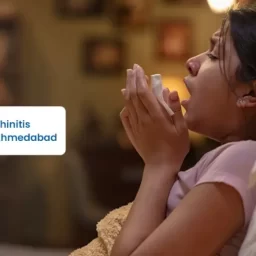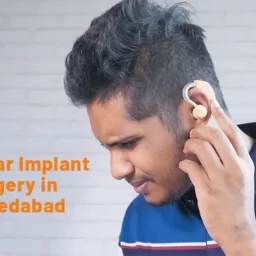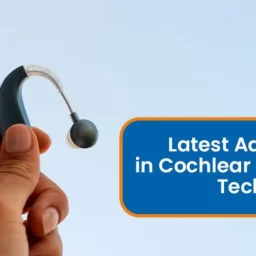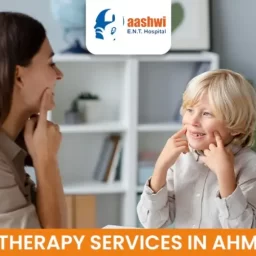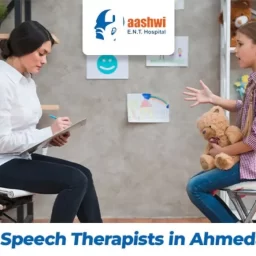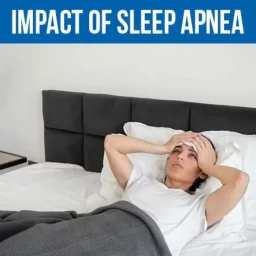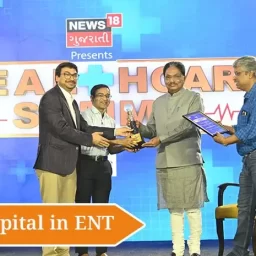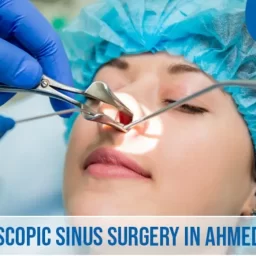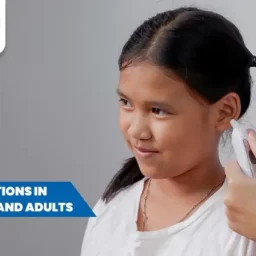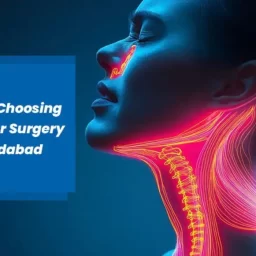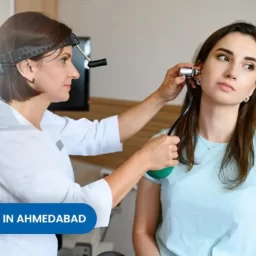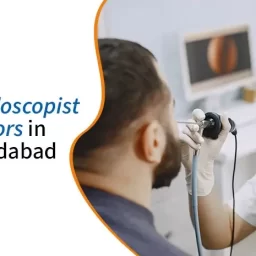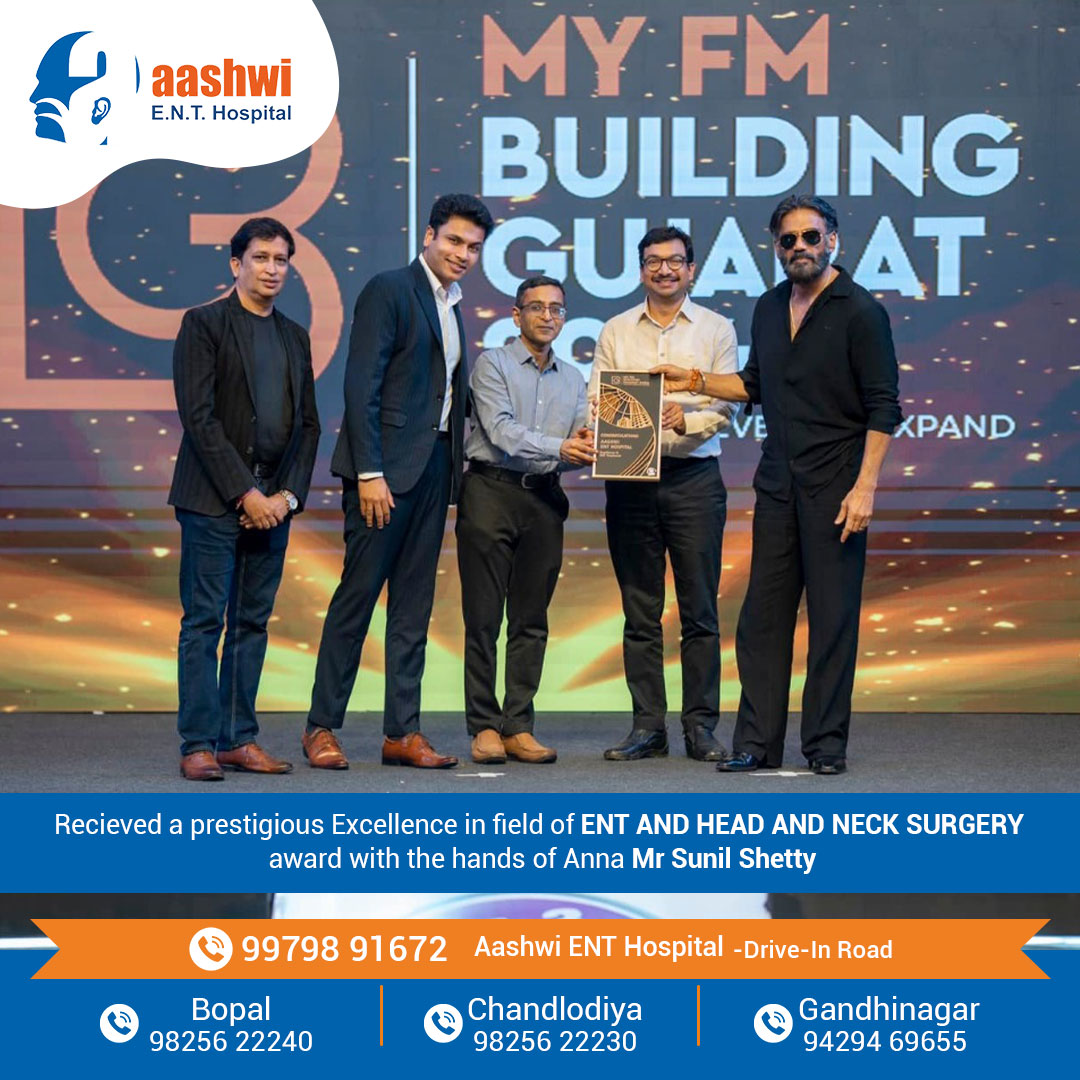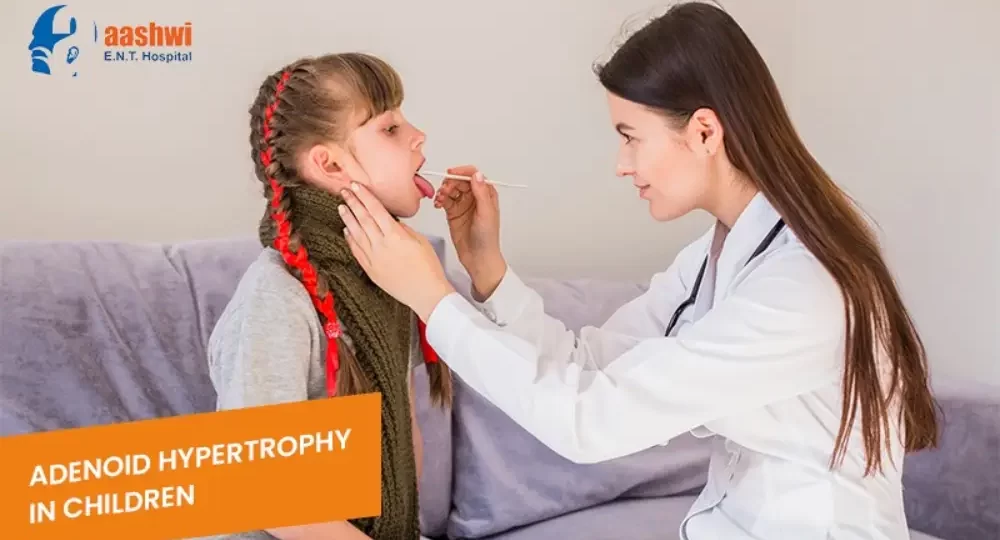
Adenoid hypertrophy is a common condition in children, where the adenoids (a patch of tissue behind the nasal cavity) enlarge, causing various breathing and health issues. While adenoids are part of the immune system and help fight off infections, their enlargement can lead to chronic problems. At Aashwi ENT Hospital, we specialize in pediatric ENT care, offering expert treatment for conditions like adenoid hypertrophy and tonsil issues. Let’s explore the causes, symptoms, and available treatments for adenoid hypertrophy in children.
What Causes Adenoid Hypertrophy in Children?
Adenoids naturally grow until about the age of 5, after which they usually shrink as a child gets older. However, some children experience adenoid enlargement due to:
- Recurrent infections (such as colds or throat infections)
- Allergies, which can cause inflammation and swelling
- Genetic factors or family history of ENT issues
- Exposure to irritants like dust, pollutants, or tobacco smoke
When the adenoids become too large, they can block the airways, leading to breathing difficulties and other complications.
Symptoms of Adenoid Hypertrophy
Children with adenoid hypertrophy may show a range of symptoms, which often overlap with other ENT conditions, such as tonsil enlargement. Common signs to watch for include:
- Mouth breathing, especially at night
- Snoring or noisy breathing during sleep
- Sleep apnea (pauses in breathing during sleep)
- Chronic nasal congestion or runny nose
- Frequent ear infections due to blocked Eustachian tubes
- Speech issues or nasal-sounding voice
- Difficulty swallowing or sore throat
If left untreated, adenoid hypertrophy can lead to complications like poor sleep, frequent infections, and even developmental issues due to interrupted breathing during sleep.
Diagnosing Adenoid Hypertrophy at Aashwi ENT
At Aashwi ENT Hospital, our pediatric ENT specialists begin with a thorough evaluation of your child’s symptoms and medical history. Diagnosis may involve:
- Physical examination of the throat and nasal passages
- Nasal endoscopy, where a small camera is used to view the adenoids
- X-rays or other imaging to assess the size of the adenoids
- Hearing tests, if ear infections are a concern
These diagnostic tools allow our team to get a clear picture of the extent of adenoid hypertrophy and to create a tailored treatment plan.
Treatment Options for Adenoid Hypertrophy at Aashwi ENT
At Aashwi ENT Hospital, we offer comprehensive treatment options designed to address adenoid hypertrophy effectively, while minimizing discomfort and downtime for children.
1. Medication and Conservative Treatments
For mild cases, medications may be the first step. These include:
- Nasal corticosteroid sprays to reduce inflammation
- Antibiotics, if infections are contributing to the swelling
- Antihistamines for children with allergies that cause adenoid issues
These treatments aim to reduce swelling and manage symptoms, but they may not provide a long-term solution if the adenoids remain enlarged.
2. Adenoidectomy (Surgical Removal of Adenoids)
If symptoms persist or worsen, adenoidectomy may be recommended. This is a simple surgical procedure to remove the adenoids, especially when they are causing severe breathing difficulties, sleep apnea, or frequent infections. At Aashwi ENT Hospital, our pediatric ENT surgeons are highly experienced in performing adenoidectomies with minimally invasive techniques, ensuring a smooth procedure and quick recovery for your child.
Benefits of Adenoidectomy:
- Improved breathing and elimination of mouth breathing
- Relief from sleep apnea and better sleep quality
- Fewer ear infections, leading to better hearing
- Reduction in nasal congestion and runny nose
3. Combined Tonsil and Adenoid Surgery
In many cases, children with adenoid hypertrophy also have enlarged tonsils, which can exacerbate symptoms like snoring, breathing difficulties, and frequent infections. Adenotonsillectomy, the removal of both the adenoids and tonsils, may be recommended for children with combined issues. This combined surgery offers significant relief from both conditions, providing long-term improvements in breathing, sleep, and overall health.
Why Choose Aashwi ENT Hospital for Pediatric Care?
Aashwi ENT Hospital in Ahmedabad is dedicated to providing specialized care for children with ENT conditions. Our pediatric ENT services are designed to ensure your child receives the best care possible in a comfortable, child-friendly environment. Dr. Manish Goyal and his team have extensive experience in treating adenoid hypertrophy, tonsil issues, and other pediatric ENT disorders, using the latest medical and surgical techniques to deliver optimal outcomes.
We understand that ENT issues can significantly impact a child’s daily life, from their ability to breathe and sleep to their development and behavior. That’s why we focus on providing personalized care, ensuring that every treatment is tailored to the individual needs of your child.
If your child is showing signs of adenoid hypertrophy or experiencing recurring tonsil problems, it’s time to seek expert help. Book a consultation at Aashwi ENT Hospital today and let our experienced team guide you through the best treatment options to help your child breathe easier and feel better.


